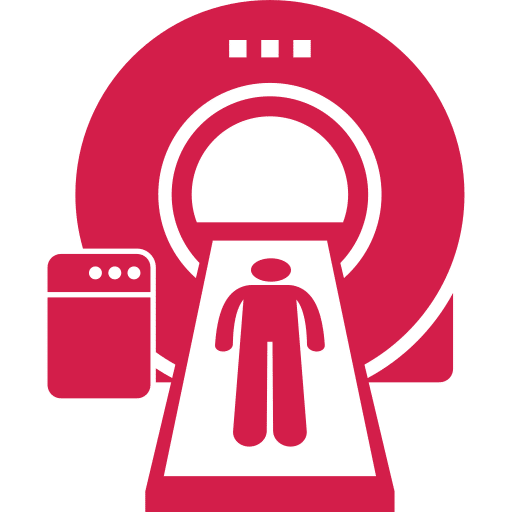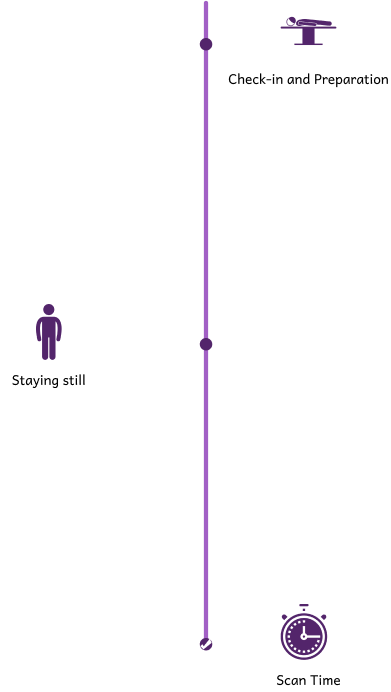Prices As Low As
₹1500
CT Scan in Bangalore
At Koshikaa Screening Center, we prioritize accuracy and early detection in our CT scan programs. To ensure the highest level of precision, we employ advanced techniques like the double reading method and Computer-Aided Detection (CAD) systems for LD/CT scans.

Cutting-edge Ultrasound Technology
We use the latest ultrasound equipment to ensure the highest quality images for precise diagnoses.

Expert Medical Team Members
Our experienced doctors and sonographers interpret the ultrasound results with great accuracy

Patient-Focused Approach
Your well-being is our priority, and we ensure a comfortable and stress-free experience during the ultrasound examination.
What is CT Scan?

Cutting-edge LDCT technology

Accessible and affordable

Patient-Focused Approach

100% Reliable and accurate reports

Easy and convenient booking

Comprehensive Screening
Request a Call Back
CT scan cost in bangalore
When considering a CT head scan, understanding the CT scan cost in Bangalore is essential for informed decision-making. Knowing the CT scan cost in Bangalore ensures transparency and helps individuals plan for their healthcare expenses accordingly.
When seeking a CT single hand scan, it’s important to inquire about the CT scan Bangalore cost for accurate financial planning. Understanding the CT scan Bangalore cost ensures transparency and enables individuals to make informed decisions about their healthcare expenditures.
The CT Chest Scan cost can vary depending on the facility and location. If you’re looking for affordable options, consider checking Ct Scan Cost In Bangalore to find the best rates.
CECT Chest scan, also known as Contrast-Enhanced Computed Tomography of the chest, offers detailed imaging of chest structures with the help of contrast material. For accurate pricing information, explore Ct Scan Bangalore options or Ct Scan Centre Near Me for nearby facilities.
For those requiring a Single Leg Scan cost assessment, it’s essential to inquire about potential discounts or packages available at Ct Scan Centres Near Me. Knowing Ct Scan Cost In Bangalore can help you budget for this diagnostic procedure.
CT LS Spine Scan cost may vary depending on the complexity of the scan and the location. Residents of Bangalore can explore Ct Scan Bangalore options to find affordable rates for this procedure.
When considering a CT Lr Spine Scan cost, individuals can utilize resources like Ct Scan Centre Near Me to locate nearby facilities offering competitive prices. Exploring Ct Scan Cost In Bangalore can provide valuable insights into the overall expenses.
CT Lumbar Spine cost is an important consideration for individuals seeking diagnostic imaging for lower back issues. By researching Ct Scan Bangalore options, patients can find convenient locations and competitive pricing.
When considering a CT Lr Spine Scan cost, individuals can utilize resources like Ct Scan Centre Near Me to locate nearby facilities offering competitive prices. Exploring Ct Scan Cost In Bangalore can provide valuable insights into the overall expenses.
CT Lumbar Spine cost is an important consideration for individuals seeking diagnostic imaging for lower back issues. By researching Ct Scan Bangalore options, patients can find convenient locations and competitive pricing.
The CT Lumba Sacral Spine Scan cost may vary based on factors such as the facility and additional services required. Residents of Bangalore can explore Ct Scan Cost In Bangalore to find affordable rates for this procedure.
Individuals seeking a CT Nose Scan cost can benefit from exploring Ct Scan Bangalore options to find cost-effective solutions. Additionally, considering Ct Scan Centre Near Me can offer convenience for those residing nearby.
When scheduling a CT PNS scan cost assessment, it’s prudent to compare prices from different facilities. Utilizing resources like Ct Scan Cost In Bangalore can assist in finding competitive rates.
CT Brain Scan cost is an important factor to consider when planning for diagnostic imaging. Residents of Bangalore can explore Ct Scan Centre Near Me to locate facilities offering this service at competitive prices.
For individuals requiring a CT Neck scan cost assessment, researching Ct Scan Bangalore options can provide insights into pricing and facility locations. Additionally, considering Ct Scan Cost In Bangalore can help in budgeting for this procedure.
When considering a CT Anus Scan cost, individuals can explore nearby Ct Scan Centre Near Me for convenience. It’s also advisable to inquire about Ct Scan Cost In Bangalore to ensure affordability.
CT Orbits Scan cost may vary depending on factors such as the facility and additional services required. Residents of Bangalore can explore Ct Scan Bangalore options to find competitive rates for this procedure.
When planning for a CT Knee Scan Cost, individuals can explore Ct Scan Centre Near Me to find nearby facilities offering this service. Additionally, researching Ct Scan Cost In Bangalore can provide insights into pricing options.
Individuals seeking a CT Foot Scan cost assessment can benefit from comparing prices at different facilities. Exploring Ct Scan Bangalore options can help in finding affordable rates for this diagnostic procedure.
For those requiring a CT Ankle Joint Scan cost assessment, researching Ct Scan Centre Near Me can provide convenient options. Additionally, exploring Ct Scan Cost In Bangalore can help in budgeting for this procedure.
Residents of Bangalore seeking a CT Fingers Scan cost assessment can explore nearby facilities by utilizing resources like Ct Scan Bangalore options. Comparing prices and services can ensure a cost-effective diagnostic experience.
When considering a CT Shoulder Scan cost, individuals can explore nearby Ct Scan Centre Near Me for convenience. Additionally, researching Ct Scan Cost In Bangalore can provide insights into pricing options and affordability.
Individuals planning for a CT Wrist Scan cost assessment can benefit from exploring nearby Ct Scan Bangalore options. Comparing prices and services can ensure a cost-effective diagnostic experience.
Residents of Bangalore seeking a CT Temporal Bone Scan cost assessment can explore nearby facilities using resources like Ct Scan Centre Near Me. Additionally, researching Ct Scan Cost In Bangalore can provide insights into pricing and affordability.
When considering a CECT pelvis scan cost, individuals can explore nearby Ct Scan Bangalore options for convenience. Additionally, researching Ct Scan Centre Near Me can help in finding competitive rates.
For those requiring a CT plain Pelvic Scan cost assessment, researching Ct Scan Cost In Bangalore can provide insights into pricing options. Additionally, exploring nearby Ct Scan Centre Near Me can offer convenient options.
Residents of Bangalore seeking a CECT abdomen scan cost assessment can explore nearby facilities using resources like Ct Scan Bangalore options. Additionally, researching Ct Scan Cost In Bangalore can provide insights into affordability.
When considering a CT pain Abdomen Scan cast, individuals can explore nearby Ct Scan Centre Near Me for convenience. Additionally, researching Ct Scan Cost In Bangalore can help in budgeting for this procedure.
For individuals requiring a CECT abdomen and pelvic Scan cost assessment, researching nearby Ct Scan Bangalore options can provide insights into pricing and facility locations. Additionally, considering Ct Scan Centre Near Me can offer convenience for those residing nearby.
Residents of Bangalore seeking a CT Screening cast can explore nearby facilities using resources like Ct Scan Cost In Bangalore. Additionally, researching Ct Scan Centre Near Me can help in finding convenient options.
When planning for a CT Abdomen and pelvis Scan cost assessment, individuals can explore nearby facilities using resources like Ct Scan Bangalore options. Additionally, considering Ct Scan Centre Near Me can offer convenience for those residing nearby.
What is a CT Scan?
Where We Use CT Scan
Utilizing CT Scan in Bangalore enables effective visualization of various structures and conditions within the body,
How to prepare/ come for CT / CAT Scan?
Reviews from Koshikaa Customers
I was thoroughly impressed with my spine CT scan here. The staff was friendly, the technician skilled, and results were promptly provided with clear explanations
Koshikaa for abdominal CT surpassed my expectations. The staff was professional and caring, the technician thorough, and the facility clean and comfortable. Highly recommended.
My pelvic CT scan experience here was seamless. The knowledgeable technician answered all my questions, and results were promptly delivered with follow up to ensure understanding.
How CT Scan Works?


Advantages of CT Scans in Early Lung Cancer Detection
Pro-active screening is the first step towards taking charge of your health, and early identification is essential in the fight against lung cancer. Our advanced lung cancer screening program at CT scan centre in Bangalore, Koshikaa is intended to identify possible problems in their early stages.
Frequently Asked Questions
Computed tomography scans, or CT scans, are diagnostic imaging techniques that produce finely detailed cross-sectional images of the body using X-rays. It enables medical professionals to see inside organs, bones, and tissues, which helps them identify anomalies such as tumors, infections, and wounds.
Fasting is frequently necessary, particularly when using contrast material. It guarantees that the contrast dye can function properly during the treatment and lowers the chance of nausea. Fasting for four to six hours before the scan is generally advised, though this can change depending on the kind of CT scan and the doctor’s recommendations.
Although CT scans expose people to radiation, the dose is small and usually regarded as safe for the majority of patients. However, before having a CT scan, women who are pregnant or think they could be should let their doctor know. Your physician will evaluate the risks and, if necessary, recommend different imaging techniques.
You can call Koshikaa Screening Centre directly or use our website to get in touch with our customer care representatives to arrange a CT scan. Our staff will help you set up your appointment and give you any preparatory guidelines you might need.
No, there is no discomfort involved in a CT scan. The procedure itself doesn’t cause any pain, though you might experience some little discomfort if you lie still or if contrast dye is administered. To guarantee precise imaging findings, you will be required to remain motionless throughout the scan.
It’s crucial to adhere to your doctor’s fasting instructions if you have a lung cancer screening appointment, particularly if contrast material will be utilized. Tell your doctor about any allergies, prescription drugs, or underlying medical concerns, and wear loose, metal-free clothing. You might have to remain motionless during the screening for the machine to acquire precise pictures of your lungs.
The contrast dye used in CT scans is generally harmless. Some people, meanwhile, can be allergic to the dye, which could cause negative consequences. Before your scan, it’s critical to let your doctor know if you have any known sensitivities, particularly to iodine-based items. Your doctor might modify the treatment or suggest different imaging techniques if you have a history of renal issues or other medical disorders.
Experience advanced CT scan services at our scanning centre in Bangalore. Our expert team ensures fast, reliable results to help diagnose and treat a variety of conditions with precision. Schedule Your Appointment Today!
When considering a CT head scan, understanding the CT scan cost in Bangalore is essential for informed decision-making. Knowing the CT scan cost in Bangalore ensures transparency and helps individuals plan for their healthcare expenses accordingly.
When seeking a CT single hand scan, it’s important to inquire about the CT scan Bangalore cost for accurate financial planning. Understanding the CT scan Bangalore cost ensures transparency and enables individuals to make informed decisions about their healthcare expenditures.
The CT Chest Scan cost can vary depending on the facility and location. If you’re looking for affordable options, consider checking Ct Scan Cost In Bangalore to find the best rates.
CECT Chest scan, also known as Contrast-Enhanced Computed Tomography of the chest, offers detailed imaging of chest structures with the help of contrast material. For accurate pricing information, explore Ct Scan Bangalore options or Ct Scan Centre Near Me for nearby facilities.
For those requiring a Single Leg Scan cost assessment, it’s essential to inquire about potential discounts or packages available at Ct Scan Centres Near Me. Knowing Ct Scan Cost In Bangalore can help you budget for this diagnostic procedure.
CT LS Spine Scan cost may vary depending on the complexity of the scan and the location. Residents of Bangalore can explore Ct Scan Bangalore options to find affordable rates for this procedure.
When considering a CT Lr Spine Scan cost, individuals can utilize resources like Ct Scan Centre Near Me to locate nearby facilities offering competitive prices. Exploring Ct Scan Cost In Bangalore can provide valuable insights into the overall expenses.
CT Lumbar Spine cost is an important consideration for individuals seeking diagnostic imaging for lower back issues. By researching Ct Scan Bangalore options, patients can find convenient locations and competitive pricing.
When considering a CT Lr Spine Scan cost, individuals can utilize resources like Ct Scan Centre Near Me to locate nearby facilities offering competitive prices. Exploring Ct Scan Cost In Bangalore can provide valuable insights into the overall expenses.
CT Lumbar Spine cost is an important consideration for individuals seeking diagnostic imaging for lower back issues. By researching Ct Scan Bangalore options, patients can find convenient locations and competitive pricing.
The CT Lumba Sacral Spine Scan cost may vary based on factors such as the facility and additional services required. Residents of Bangalore can explore Ct Scan Cost In Bangalore to find affordable rates for this procedure.
Individuals seeking a CT Nose Scan cost can benefit from exploring Ct Scan Bangalore options to find cost-effective solutions. Additionally, considering Ct Scan Centre Near Me can offer convenience for those residing nearby.
When scheduling a CT PNS scan cost assessment, it’s prudent to compare prices from different facilities. Utilizing resources like Ct Scan Cost In Bangalore can assist in finding competitive rates.
CT Brain Scan cost is an important factor to consider when planning for diagnostic imaging. Residents of Bangalore can explore Ct Scan Centre Near Me to locate facilities offering this service at competitive prices.
For individuals requiring a CT Neck scan cost assessment, researching Ct Scan Bangalore options can provide insights into pricing and facility locations. Additionally, considering Ct Scan Cost In Bangalore can help in budgeting for this procedure.
When considering a CT Anus Scan cost, individuals can explore nearby Ct Scan Centre Near Me for convenience. It’s also advisable to inquire about Ct Scan Cost In Bangalore to ensure affordability.
CT Orbits Scan cost may vary depending on factors such as the facility and additional services required. Residents of Bangalore can explore Ct Scan Bangalore options to find competitive rates for this procedure.
When planning for a CT Knee Scan Cost, individuals can explore Ct Scan Centre Near Me to find nearby facilities offering this service. Additionally, researching Ct Scan Cost In Bangalore can provide insights into pricing options.
Individuals seeking a CT Foot Scan cost assessment can benefit from comparing prices at different facilities. Exploring Ct Scan Bangalore options can help in finding affordable rates for this diagnostic procedure.
For those requiring a CT Ankle Joint Scan cost assessment, researching Ct Scan Centre Near Me can provide convenient options. Additionally, exploring Ct Scan Cost In Bangalore can help in budgeting for this procedure.
Residents of Bangalore seeking a CT Fingers Scan cost assessment can explore nearby facilities by utilizing resources like Ct Scan Bangalore options. Comparing prices and services can ensure a cost-effective diagnostic experience.
When considering a CT Shoulder Scan cost, individuals can explore nearby Ct Scan Centre Near Me for convenience. Additionally, researching Ct Scan Cost In Bangalore can provide insights into pricing options and affordability.
Individuals planning for a CT Wrist Scan cost assessment can benefit from exploring nearby Ct Scan Bangalore options. Comparing prices and services can ensure a cost-effective diagnostic experience.
Residents of Bangalore seeking a CT Temporal Bone Scan cost assessment can explore nearby facilities using resources like Ct Scan Centre Near Me. Additionally, researching Ct Scan Cost In Bangalore can provide insights into pricing and affordability.
When considering a CECT pelvis scan cost, individuals can explore nearby Ct Scan Bangalore options for convenience. Additionally, researching Ct Scan Centre Near Me can help in finding competitive rates.
For those requiring a CT plain Pelvic Scan cost assessment, researching Ct Scan Cost In Bangalore can provide insights into pricing options. Additionally, exploring nearby Ct Scan Centre Near Me can offer convenient options.
Residents of Bangalore seeking a CECT abdomen scan cost assessment can explore nearby facilities using resources like Ct Scan Bangalore options. Additionally, researching Ct Scan Cost In Bangalore can provide insights into affordability.
When considering a CT pain Abdomen Scan cast, individuals can explore nearby Ct Scan Centre Near Me for convenience. Additionally, researching Ct Scan Cost In Bangalore can help in budgeting for this procedure.
For individuals requiring a CECT abdomen and pelvic Scan cost assessment, researching nearby Ct Scan Bangalore options can provide insights into pricing and facility locations. Additionally, considering Ct Scan Centre Near Me can offer convenience for those residing nearby.
Residents of Bangalore seeking a CT Screening cast can explore nearby facilities using resources like Ct Scan Cost In Bangalore. Additionally, researching Ct Scan Centre Near Me can help in finding convenient options.
When planning for a CT Abdomen and pelvis Scan cost assessment, individuals can explore nearby facilities using resources like Ct Scan Bangalore options. Additionally, considering Ct Scan Centre Near Me can offer convenience for those residing nearby.
Where We Use CT Scan
Utilizing CT Scan in Bangalore enables effective visualization of various structures and conditions within the body,
How CT Scan Works?


How to prepare For CT Scan?
Why Choose Koshikaa for CT Scan in Bangalore?
Choosing Koshikaa for your CT scan means trusting a team that genuinely cares about your health. We combine advanced technology, expert radiology services, and patient-first care to provide a seamless diagnostic experience.

Advanced CT Scan Technology
We use advanced CT scan machines, ensuring high-resolution imaging with reduced radiation exposure and better diagnostic outcome.

Experienced Radiology Team
Our skilled radiologists and technicians analyze the results with precision, providing your doctor with accurate diagnostic insights.

Comprehensive Screening Services
Head CT scans, abdomen, and specialized scans like angiography, we offer a wide range of CT scan services under one roof.

Patient-Centric Approach
At Koshikaa, we prioritize your comfort and well-being. Our staff ensures smooth process by guiding you through every step.

Affordable Pricing
Koshikaa offers affordable CT scan services without compromising on technology or care standards.
Reviews from Koshikaa Customers
I was thoroughly impressed with my spine CT scan here. The staff was friendly, the technician skilled, and results were promptly provided with clear explanations
Koshikaa for abdominal CT surpassed my expectations. The staff was professional and caring, the technician thorough, and the facility clean and comfortable. Highly recommended.
My pelvic CT scan experience here was seamless. The knowledgeable technician answered all my questions, and results were promptly delivered with follow up to ensure understanding.
Frequently Asked Questions
CT scans provide detailed cross-sectional images quickly, making them ideal for diagnosing a wide range of conditions such as tumors, fractures, and internal injuries.
Contrast dye is a special liquid injected into your veins to enhance the clarity of images, making it easier to detect abnormalities.
You can book a CT scan by visiting the website or contacting your preferred diagnostic center. Many centers, such as Koshikaa, offer online booking for added convenience.
Your doctor will recommend the type of CT scan based on your symptoms. Common types include brain, chest, abdomen, and cardiac CT scans.
Yes, in most cases, you can take your medications. However, inform your doctor about any medications you are taking.
Wear loose, comfortable clothing without metal zippers, buttons, or accessories. You may need to change into a hospital gown.
Inform your doctor if you have any known allergies to contrast dye. They may prescribe medications to minimize the risk or suggest alternative imaging methods.

Bone X-rays are essential for diagnosing fractures and assessing bone alignment, aiding doctors in developing treatment plans and monitoring healing progress. They provide detailed images of the skeletal system, helping identify abnormalities or injuries that may not be visible through other imaging techniques